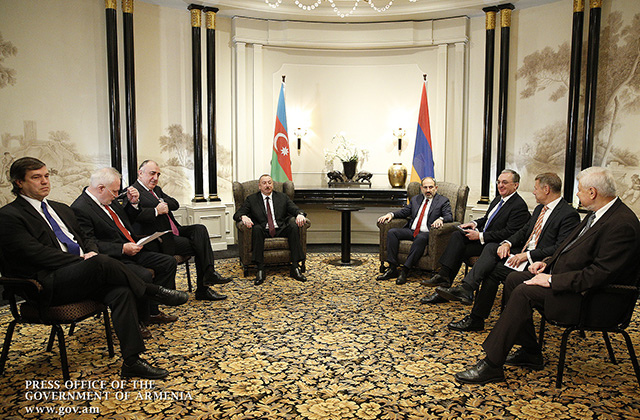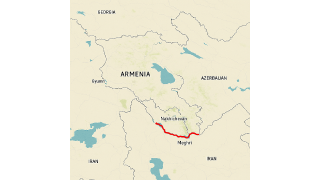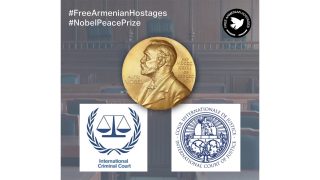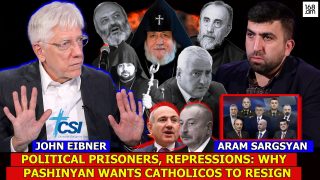
Pashinyan reiterates having discussed inclusion of Artsakh in negotiations in Vienna summit

Armenian Prime Minister Nikol Pashinyan has disclosed details over his latest meeting with Azerbaijani President Ilham Aliyev in Vienna.
Speaking live via Facebook, Pashinyan also addressed comments voiced from the Azerbaijani side.
He reiterated his positive assessment of the meeting and highlighted that “we should bring a new culture into the logic of these meetings, whereby we don’t look for losers or winners after the meetings. And I believe it is highly important that after the meetings the sides maximally proceed in their statements within the logic of not placing the other party in a bad situation somehow, but rather remain 100% committed to the truth and the spirit of the negotiations logic”.
He said it’s time to proceed with new approaches also in the negotiations process, and this is what Armenia is proposing.
Pashinyan reiterated that he went to the summit with the Stepanakert agenda, i.e. the agenda that was outlined during the March 12 joint Security Council session of Armenia and Artsakh.
“Emphasizing the inclusion of Karabakh [in talks] and raising the issue, we haven’t raised an issue of format change at all. The negotiations format under the OSCE Minsk Group Co-Chairmanship isn’t under doubt at all. The question is what this format essentially means. Nagorno Karabakh has for a long time been a party to negotiations”, he said.
The Armenian PM reiterated that in Vienna he has discussed the inclusion of Artsakh in the talks with President Aliyev, noting that the Armenian side has presented serious arguments.
He said the parties did not reach an agreement over this issue. “This means we must continue discussions over this issue, and this is very important for making the negotiations efficient”.
In addition to previously made arguments, Pashinyan noted a new one this time. “Karabakh has been represented in the negotiations process since 1998. Because now in many cases we are saying that Karabakh has been left out of the negotiations process since 1998. Indeed, it is so formally, but from 1998 until 2008 Karabakh has been included in the negotiations process because in the negotiations process Armenia was represented by people who at some stage of their biographies have been Karabakh leaders and could’ve been considered such in some way. At least the people of Karabakh could’ve considered that they are represented at in the negotiations process. Therefore our argument is that until 1998 and afterwards Karabakh has been present at the negotiations process and now, due to circumstances known to you, due to the fact that I am not a native of Karabakh and I haven’t been one of Karabakh leaders in any stage of my biography, it so happens that Karabakh has been left out of the negotiations process. Whatever has been said in the past has been said in Vienna also, and we have a solid foundation of arguments”.
He said he also discussed the issue of clarifying the Madrid principles.
Pashinyan argues that the Azerbaijani statements regarding the negotiations process comments contain old and inertial texts which do not reflect the new atmosphere that exists in the negotiations.
“I wouldn’t want to give any assessment to these comments, I simply want us to remain within the agreements that have been reached during our meetings, while these are states in the joint statement of the Minsk Group Co-Chairs and the foreign ministers of the two countries”, Pashinyan said.
Below is the full Joint Statement by the Foreign Ministers of Armenia and Azerbaijan and the Co-Chairs of the OSCE Minsk Group issued on March 29.
“The President of the Republic of Azerbaijan Ilham Aliyev and the Prime Minister of the Republic of Armenia Nikol Pashinyan met today in Vienna for the first time under the auspices of the Co-Chairs of the OSCE Minsk Group (Igor Popov of the Russian Federation, Stéphane Visconti of France, and Andrew Schofer of the United States of America). The meeting was also attended by Foreign Ministers Zohrab Mnatsakanyan and Elmar Mammadyarov. Andrzej Kasprzyk, the Personal Representative of the OSCE Chairperson-in-Office, also participated in the meeting.
The meeting took place in a positive and constructive atmosphere and provided an opportunity for the two leaders to clarify their respective positions. They exchanged views about several key issues of the settlement process and ideas of substance.
The two leaders underlined the importance of building up an environment conducive to peace and taking further concrete and tangible steps in the negotiation process to find a peaceful solution to the conflict.
Recalling their conversation in Dushanbe, the leaders recommitted to strengthening the ceasefire and improving the mechanism for direct communication. They also agreed to develop a number of measures in the humanitarian field.
The Prime Minister and President instructed their Ministers to meet with the Co‑Chairs again in the near future. They also agreed to continue their direct dialogue.”























